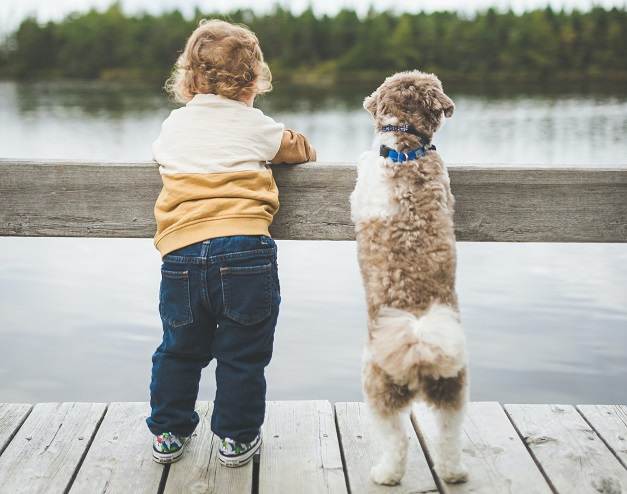All Articles & Guides / Grief / How to Explain Death to a Child
How to Explain Death to a Child
"A family is a risky venture, because the greater the love, the greater the loss… That's the trade-off, but I'll take it all." Brad Pitt
When we learn that a loved one or a family pet has a terminal diagnosis, we are graced with the ability to mentally prepare for the loss and the grief that comes with it. Often, the grief process starts as soon as we receive the news. As adults, preparing for loss can include helping to get affairs in order and planning a final goodbye. But often for children, the experience is much different, especially if this is the child's first loss. To help you through this situation, we've put together a list of tips for how to explain death to a child and prepare them for the loss of a pet or loved one.
How to Explain the Death of a Pet to a Child
A pet can be as much a member of the family as a human, especially if that pet has always been in the child's life. The loss of a furry companion can be devastating, and if you have the opportunity to prepare your child to say goodbye in advance, the blow may be easier for them to take. Here are some tips from the experts for talking about the expected death of a pet with your child:
- Explain the circumstances of the pet's illness. Depending on the child's age, this will take different forms. In a gentle yet clear way, tell them the pet is not well because its body is sick.
- Explain clearly to the child what death is. It's best not to use euphemisms and to be completely honest with your child. Saying the animal went to sleep or was taken by God can lead to confusion and resentment. Telling your child that death happens when the body stops working and doing it in a way that fits your family's worldview is a good start.
- Explain euthanasia to your child. While it's not a good idea to use the "going to sleep" euphemism because it can create sleep anxiety, it is important to let your child know that euthanasia is a humane way to let your pet pass without additional suffering.
- Listen and validate your child's emotions. The child's age will determine how they express their feelings. Under the age of two, your child will respond to the emotions of the older people around them. Between two and five, they will miss the pet's presence after it's gone, but they may not feel the loss as deeply as they would a family member. After age five, they may experience complex emotions, including guilt if they said anything against the pet before it passed. After age ten, they may feel any of the stages of grief that adults go through: denial, bargaining, anger, guilt, depression, and acceptance. At any age, the child's behavior may change as they process the loss in their own way.
- Seek professional counseling if needed. If your child experiences a prolonged behavior change or shows symptoms of depression, talk with your pediatrician and consider finding a counselor who specializes in helping children.
Experiencing the loss of a pet is difficult enough, but what if a terminal diagnosis happens to a family member or close friend?

How to Prepare a Child for the Death of a Loved One
The basic guidelines for preparing a child for the loss of a pet can apply to losing a family member or close friend. You want to explain the situation in a way they can understand without using words that may cause confusion or resentment in the long run.
There are four aspects of death that a child needs to understand:
- Death is permanent.
- All bodily functions stop with death.
- Death happens to all living things.
- There are many causes of death.
How well children understand these ideas will determine how they respond to the news that a loved one will pass sooner rather than later. To help your children cope, make sure they feel loved and supported, encourage them to share their feelings if they want to, understand if they have difficulty talking about them, and be physically present for your child. They may need extra hugs and reassurance that no one other than the terminally ill person is going to leave them.
Throughout the process, be honest with your children and let them know what is going on. If you must leave your home to stay with and help a sick relative, explain why and when you will return. Answer their questions as clearly as you can, and ask for help when needed. Take care of yourself, too. Children react to their parents' emotions and demeanor, so self-care is as crucial as caring for them.
We hope these tips on how to explain death to a child will help your family more easily navigate this difficult time. Please check out the sources below for more helpful information on helping your child cope with losing a pet or loved one.

Related Content





